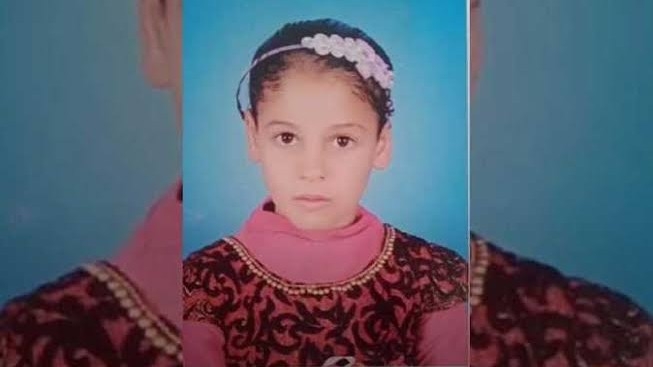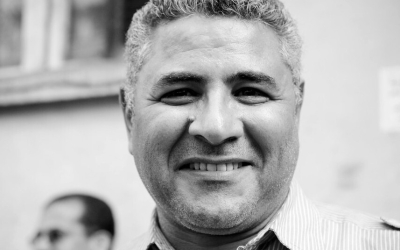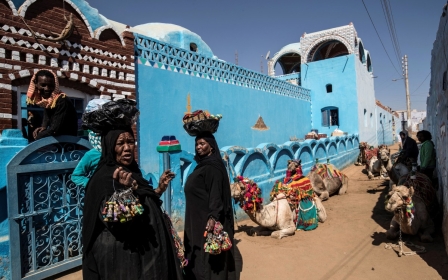Egypt outraged by death of child hit on head multiple times by teacher

The death of a nine-year-old schoolgirl after a teacher hit her on the head for making a spelling mistake has provoked widespread anger and calls for justice in Egypt.
Basmala Osama Ali Mohamed, who attended Taranis al-Arab primary school in Dakahlia province, spent eight days in the hospital suffering from a brain haemorrhage before she died on Sunday.
Egyptian media reported that a 50-year-old Arabic teacher, named Samir, had hit Basmala on the head with a wooden stick three times after she made a spelling mistake while writing on the blackboard in front of the entire classroom.
The teacher is well known for carrying a wooden stick and for his violent behaviour toward students.
Egyptian human rights activist Osama Rushdi tweeted that the teacher's action was "dehumanising" and referred to the stick as "deadly".
New MEE newsletter: Jerusalem Dispatch
Sign up to get the latest insights and analysis on Israel-Palestine, alongside Turkey Unpacked and other MEE newsletters
Basmala's father said that his daughter had suffered from a brain haemorrhage and fallen into a coma after the attack. He added that the school principal had wrongly attempted to treat her instead of calling the ambulance, which worsened her condition.
The nine-year-old was carried in a motorised tricycle by another teacher and left outside the front door of her home, bleeding and unconscious, her father said.
The teacher was detained for four days pending investigation and was suspended from teaching for three months after Basmala's father filed a complaint at El-Senbellawein police station in Dakahlia.
Taranis al-Arab primary school's principal was also suspended for failing to inform the police about the assault on the young student.
Widespread abuse
Reda Hegazy, Egypt's education minister, offered condolences and sympathy to the family of Basmala, saying the ministry would "not accept any transgression either by the teacher, who should serve as a role model for students, or by any official belonging to the ministry".
Hegazy said that a school hall would be named after Basmala.
The incident has prompted a wave of criticism of teachers who use violence and corporal punishment on social media, as well as an outpouring of support for the family and calls for them to push for justice.
Corporal punishment is common in schools across North Africa and the Middle East.
According to a Human Rights Watch (HRW) report on corporal punishment in schools in 2020, in some countries in the region, "90 percent of children or more were subject to physical or verbal abuse each month".
In Egypt, an official survey found in 2020 that "nearly two out of three Egyptian students had been beaten at school with sticks, belts, canes or whips," while the country's legal system is devoid of any bill that directly prohibits the violent disciplining of children.
"Egypt should reform its laws to remove exemptions from punishment for the violent discipline of children, and should explicitly ban all corporal punishment," HRW said in its report.
This article is available in French on Middle East Eye French edition.
Middle East Eye delivers independent and unrivalled coverage and analysis of the Middle East, North Africa and beyond. To learn more about republishing this content and the associated fees, please fill out this form. More about MEE can be found here.





